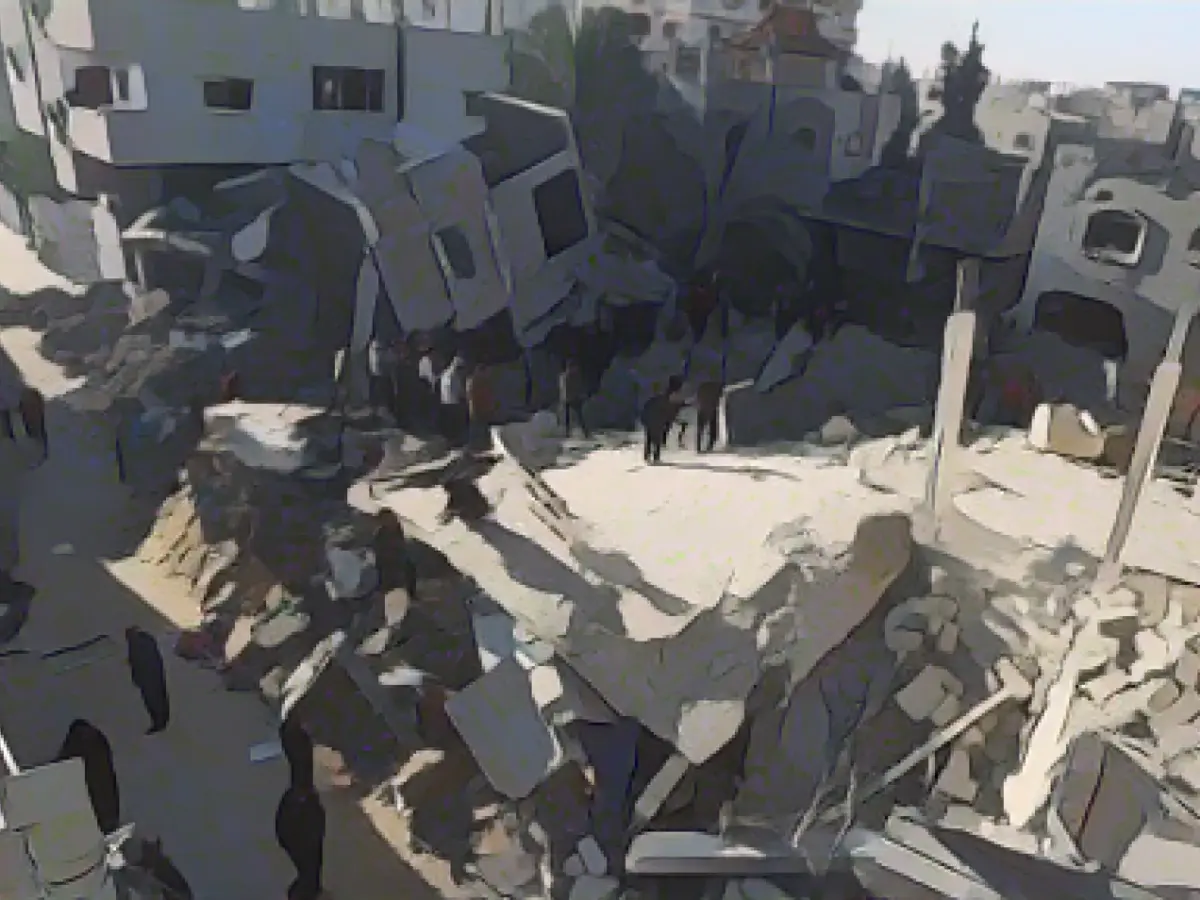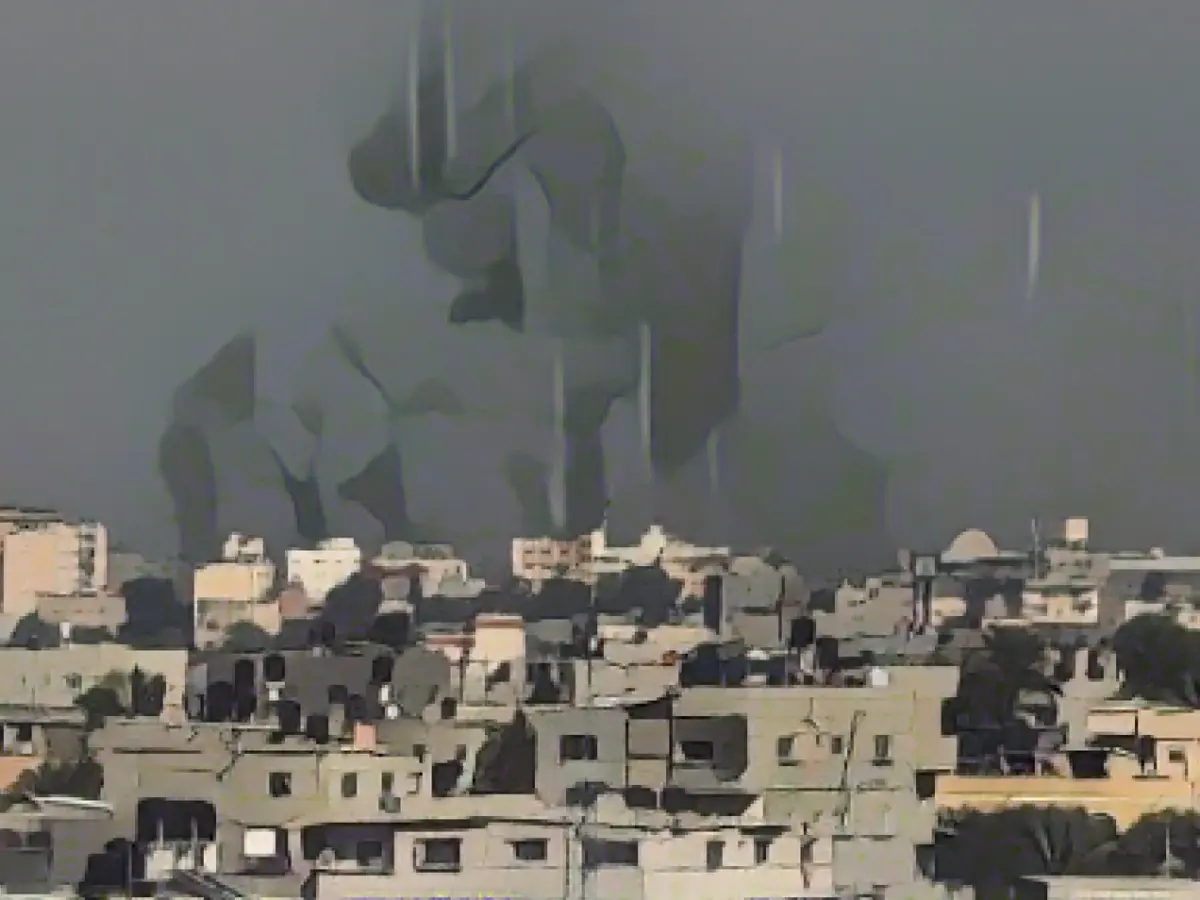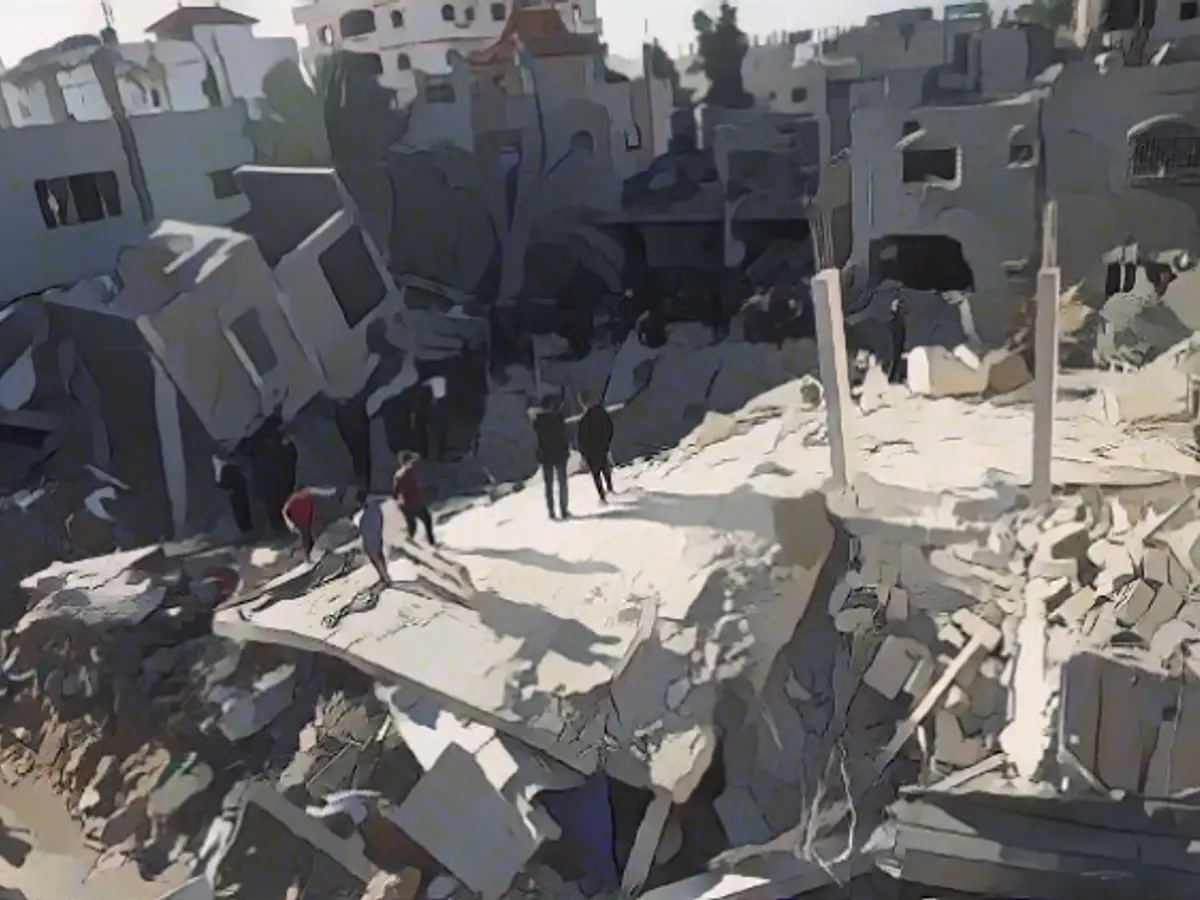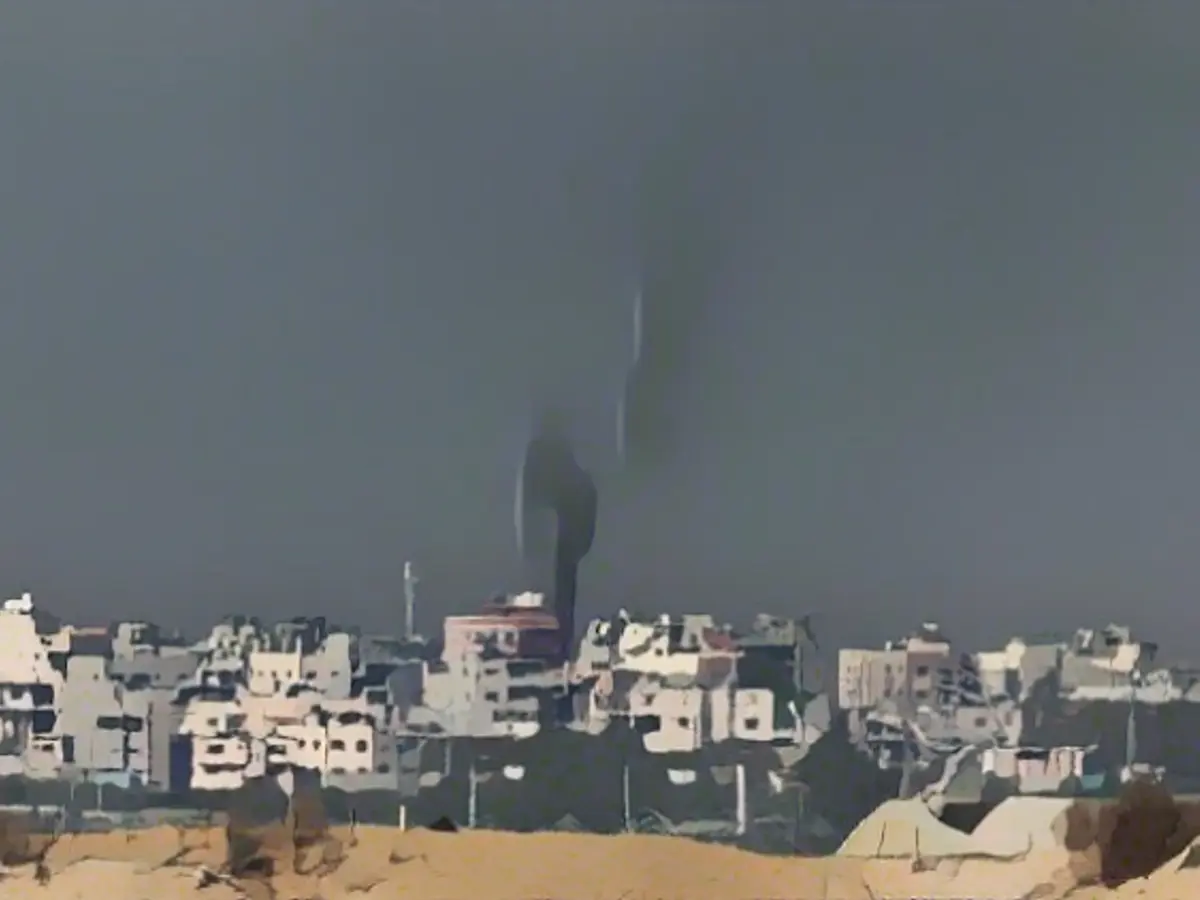Middle East Tensions - Escalating Conflicts in the Region
The Middle East is currently in the throes of escalating conflicts, with Israel and Hamas clashing in Gaza, and Houthi rebels waging attacks on merchant ships in the Red Sea, backed by Israel's adversary, Iran. The situation has sparked concerns about a potential escalation and the need for diplomatic efforts to de-escalate tensions.
Diplomatic Efforts to Address the Crisis
American diplomatic efforts have been instrumental in addressing the situation. US Vice President Kamala Harris held discussions with Israeli President Isaac Herzog and Mahmoud Abbas, the President of the Palestinian Authority, expressing concern about the violence in Gaza after returning from a climate conference in Dubai. Secretary of State Antony Blinken also spoke with the Emir of Qatar, emphasizing the importance of facilitating the safe return of all remaining hostages and increasing assistance to the civilian population in Gaza.
Israeli Army Advancements in Gaza
The Israeli army has been conducting intense operations in Gaza, with Chief of Staff Herzi Halevi revealing that the military has been focusing on fighting in both the northern and southern parts of the region. The Israeli army's attacks on Hamas have resulted in a major humanitarian crisis, with hundreds of thousands of Palestinians fleeing their homes and severe casualties reported by the Hamas-controlled health authority.
Renewed Houthi Attacks on Merchant Ships
In response to the situation in Gaza, Houthi rebels have intensified attacks on merchant ships in the Red Sea. All ships flying the Israeli flag, owned by Israeli companies, or operated by Israeli companies have been targeted by the Houthis, with one ship severely damaged and in danger of sinking.
The Impact of Iran on the Middle East Conflicts
Iran's involvement in the Middle East has played a significant role in the escalation of conflicts, supporting both Hamas and Houthi rebels in their respective struggles. The US military has expressed concern over the increase in attacks on US forces in the Middle East by Iran-affiliated groups, further fueling concerns of an escalation in the region.
Criticism and Concerns
The Israeli army's advancements in Gaza have drawn criticism from UNICEF, with spokesman James Elder sharply criticizing the Israeli attacks during a visit to the southern Gaza Strip, alleging that a "bloodbath" was taking place. The violence of extremist Israeli settlers in the West Bank and the steps that could lead to an escalation of tensions have also been a source of concern for the US Vice President Harris during her talks with Israeli President Herzog.
The ongoing conflicts in the Middle East have significant implications for regional stability, global shipping, and humanitarian crises. The complex and volatile nature of the region requires continuous diplomatic efforts and negotiations to de-escalate tensions and work towards a peaceful resolution to the conflicts.
Sources:
Enrichment Data:
The escalation of conflicts in the Middle East, particularly involving Hamas and Houthi rebels, has significant impacts on both the Red Sea and the Gaza Strip war. Here are the key points:
Impact on the Red Sea
- Houthi Attacks:
- Frequency and Targets: The Houthi rebels have launched numerous attacks on merchant ships in the Red Sea since October 2023, targeting vessels linked to Israel, the U.S., and the U.K. However, many of the ships attacked had little or no connection to these countries, including some bound for Iran[2][4].
- Consequences: These attacks have resulted in significant disruptions to global shipping, with hundreds of commercial vessels rerouting to avoid the area. The Houthi actions have halved traffic through the Red Sea, cutting deeply into revenues for Egypt, which runs the Suez Canal linking the Red Sea to the Mediterranean[2][4].
- Military Response: The attacks have drawn a military response from the U.S., the U.K., and other countries. The U.S.-led Operation Prosperity Guardian was launched to protect Red Sea shipping, and coalition air and missile strikes have been conducted against Houthi targets[4].
Impact on the Gaza Strip War
- Ceasefire and Hostage Release:
- Ceasefire Agreement: A ceasefire agreement between Israel and Hamas, which took effect on 19 January 2025, has led to a significant decrease in violence in the Gaza Strip. The agreement included the release of hostages, which has brought much-needed respite to the people of Gaza[3][5].
- Violence Reduction: Following the ceasefire, the number of Israeli Defense Forces (IDF) attacks dropped from an average of 27 per day to less than three per day. However, there have still been incidents, with at least 16 fatalities in January, mostly due to drone strikes[5].
Broader Regional Dynamics
- Escalating Violence:
- West Bank Operations: The IDF has launched major operations in the West Bank, particularly in Jenin, Tulkarm, and Tubas, targeting Palestinian armed groups. This has led to a significant increase in violence and civilian casualties, with at least 44 Palestinians killed during the ongoing operation[5].
- Houthi Confrontations: In Yemen, Houthi confrontations with local tribes have escalated, particularly in the al-Bayda governorate. This has resulted in a high number of reported fatalities and displaced civilians[5].
Political and Strategic Implications
- Israel’s Hawkish Approach:
- Annexation Efforts: Israel is likely to restart efforts to accelerate the annexation of parts of the West Bank, maintaining a hawkish approach to the Palestinian Territories[1].
- Two-State Solution: There is a wild card scenario where Israel, Arab states, and the PA might make a grand normalization bargain, brokered by the U.S. and led by Saudi Arabia, with Israel agreeing to terms that guarantee Palestinian statehood on the principles of a two-state solution[1].
The conflicts in the Middle East, particularly those involving Hamas and Houthi rebels, have far-reaching implications for regional stability, global shipping, and humanitarian crises. The ongoing negotiations and military actions highlight the complex and volatile nature of the region.








